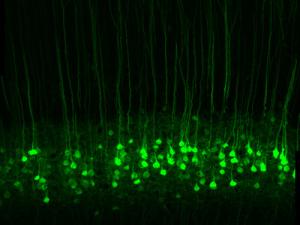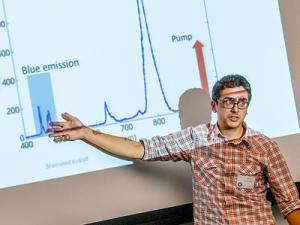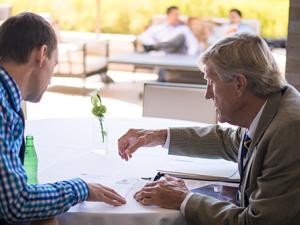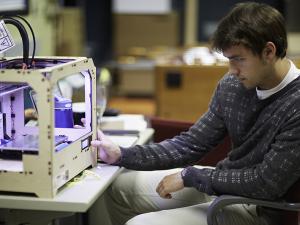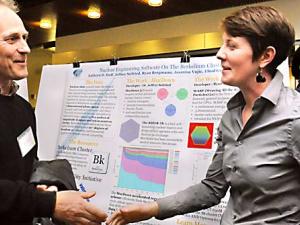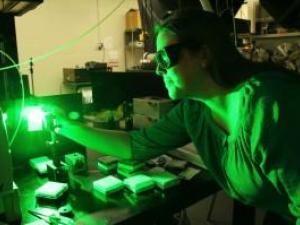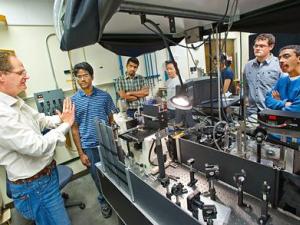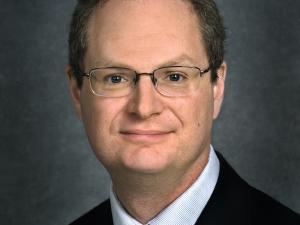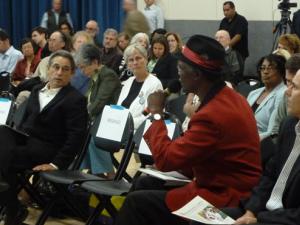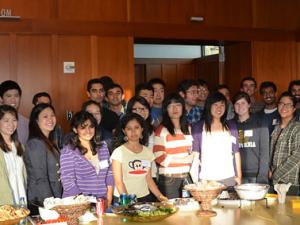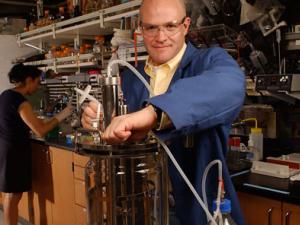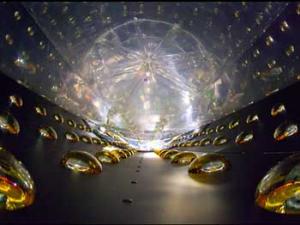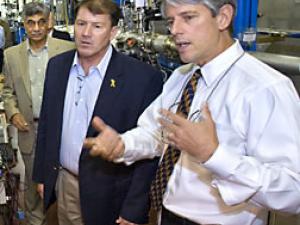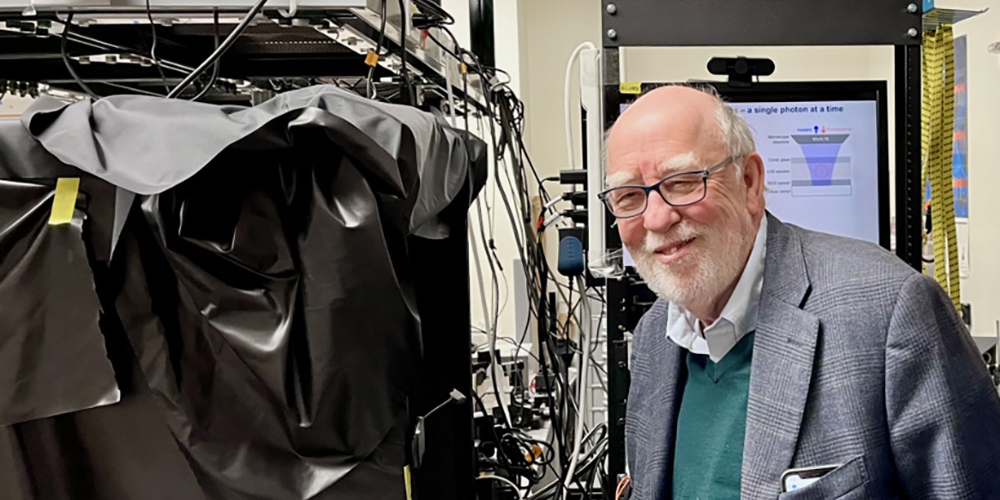

Research Expertise and Interest
chemistry, proteins, chemical and biological dynamics in the condensed phase, ultrafast spectroscopy, liquids, solutions, glasses, photosynthetic proteins, role of solvents in chemical reactions, electronic energy transfer, electron transfer, regulation of photosynthetic light harvesting
Research Description
The Fleming Group is studying dynamical processes in a range of complex systems, such as liquids, solutions and proteins. The major experimental tool is femtosecond spectroscopy which is combined with both theory and computer simulation to interpret the data.
Their goal is to provide a molecular-level description of the role of solvents in chemical reactions and of the primary steps in natural photosynthesis.
They develop new types of spectroscopies, most recently two-dimensional electronic-vibrational (2DEV) spectroscopy which is being applied to energy transfer, proton-coupled electron transfer, proton transfer, and conical intersection dynamics. We are also utilizing quantum light spectroscopy (entangled pairs of photons) to explore fundamental aspects of light matter interaction, and quantum coherence.
The primary events in photosynthesis involve energy transfer and electron transfer on ultrashort time scales. Use is made of genetic modification methods to investigate the role of the protein on these astonishingly efficient processes. Both bacterial, algal, and higher plant systems are studied with a particular current goal being to understand the mechanism of regulation of light harvesting in plants. We also study synthetic systems with the goal of exploiting quantum coherence to create novel function.
In the News
NIH awards UC Berkeley $7.2 million to advance brain initiative
The National Institutes of Health today announced its first research grants through President Barack Obama’s BRAIN Initiative, including three awards to the University of California, Berkeley, totaling nearly $7.2 million over three years.
Three Bay Area institutions join forces to seed transformative brain research
Two state-of-the-art research areas – nanotech and optogenetics – were the dominant theme last Thursday, Sept. 18, as six researchers from UC Berkeley, UC San Francisco and Lawrence Berkeley National Laboratory sketched out their teams’ bold plans to jump-start new brain research.
Bakar research fellows make their case in Silicon Valley
Sixteen faculty members from UC Berkeley’s Bakar Fellows Program recently took their research ideas to Sand Hill Road — the heart of Silicon Valley’s venture capital community — for a coveted meeting with some of the nation’s top angel investors.
New ideas and technology spreading from campus faster than ever
Backed by a vibrant startup culture that serves as the engine of economic growth for much of the Bay Area, UC Berkeley has established several new programs that support the translation of university research into real-world solutions.
Big turnout for launch of big-data center
A throng turned out for Thursday’s high-spirited launch of the Berkeley Institute for Data Science. Designed to help researchers across the disciplines harness data in order to spur discoveries and create knowledge, the center for data-related teaching and collaboration will be housed in Doe Library.
Diamond imperfections pave the way to technology gold
Berkeley study provides unprecedented details on ultrafast processes in diamond nitrogen vacancy centers.
UC Berkeley, Berkeley Lab announce Kavli Energy NanoScience Institute
The Kavli Foundation has endowed a new institute at the University of California, Berkeley, and the Lawrence Berkeley National Laboratory (Berkeley Lab) to explore the basic science of how to capture and channel energy on the molecular or nanoscale and use this information to discover new ways of generating energy for human use.
Alivisatos appointed Samsung Distinguished Chair in Nanoscience
Chemist Paul Alivisatos, one of the pioneers of nanoscience, has been appointed to the Samsung Distinguished Chair in Nanoscience and Nanotechnology at UC Berkeley in recognition of his many scientific achievements.
For Richmond residents, RBC spells restoration, remediation, renewal
A second community meeting was held at the Richmond Memorial Auditorium and UC Berkeley and Lawrence Berkeley National Laboratory — the city’s partners in the joint campus — brought along some of the scientists themselves, who talked about their research and took questions from the audience.
Simons Foundation awards UC Berkeley $60 million for theory of computing institute
The Simons Foundation has awarded a landmark $60 million grant to UC Berkeley to establish a theory of computing institute that promises to catalyze new advances in broad disciplines that affect our everyday lives, from how we spend our money to how we fight disease.
Cal Energy Corps interns prep for sustainable future
Some 32 Berkeley undergraduates will spend up to 12 weeks working on sustainability projects in the Bay Area and across nine far-flung countries.
Pilot program to bolster biophysical sciences’ innovation pipeline
The new Bakar Fellows Program is designed to help early-career Berkeley faculty commercialize promising research discoveries.
New discovery is key to understanding neutrino transformations
The joint China-U.S. Daya Bay experiment to explore the multiple personalities of neutrinos announced its first results, paving the way for further experiments on whether neutrinos and antineurtinos have similar split identities
Lessons to be Learned from Nature in Photosynthesis
Lessons to be learned from nature could lead to the development of an artificial version of photosynthesis that would provide us with an absolutely clean and virtually inexhaustible energy source, says Berkeley Lab photosynthesis authority Graham Fleming and three international colleagues.
Three UC Berkeley scholars elected to American Philosophical Society
Three UC Berkeley scholars have been elected to America’s oldest learned society, the American Philosophical Society, which was founded by Benjamin Franklin in 1743.
Berkeley stakes science claim at Homestake gold mine
Berkeley stakes science claim at Homestake gold mine UC Berkeley and Berkeley Lab plan to turn South Dakota's Homestake gold mine into a world-class science complex, with underground experiments in astrophysics, physics, biology and earth science. South Dakota Gov. Mike Rounds, a big supporter of the effort, visited the campus and lab June 12 to cement the relationship and see what a large research complex looks like.
